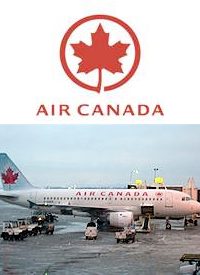
As a means to increase government revenues, which the government says will help reduce the nation’s ever-expanding federal deficit, the Department of Homeland Security is looking into a proposed change to border crossing policies that would force Canadians looking to visit the United States, arriving via air or sea, to pay more for the privilege.
Citizens from Mexico and the Caribbean would also pay the fee that America’s nearest neighbors have long been exempt from, Canada included.
A $5.50 border fee proposed for the 2012 budget would net millions for the American coffers, funding security measures. Analysts predict the increase in collections could bring in up to $110 million dollars.
President Barack Obama proposed the expanded fee in his 2012 draft budget released this week to help pay for airport security checks and inspections. It is already charged to most international travelers, but Canada, Mexico and the Caribbean were exempted.
Revenue from the charges would be used to support U.S. Customs and Border Protection’s inspection functions, the document says.
According to Statistics Canada, more than 16.3 million passengers took trans-border flights between Canada and the United States in 2009.
In a statement released by Homeland Security, Assistant Press Secretary Adam Fetcher said: “The current exemption means that the fees collected from passengers entering from all other countries and appropriated tax dollars are subsidizing the inspections of passengers from Canada, Mexico and the Caribbean. Removing the exemption would bring fee parity for all air and sea passengers entering the United States. We will continue to work closely with our partners in Mexico, Canada and the Caribbean to provide greater security and greater economic opportunity for all international travelers.”
Canadian Foreign Affairs officials have blasted the fee. Lynn Meahan, press secretary for the Canadian Minister of Foreign Affairs Lawrence Cannon, released this strongly worded statement regarding the proposed fee: “Obviously, we think this is a bad idea. In this fragile economic recovery, now is not the time to be imposing new fees or taxes on Canadians. We need to work together to increase the flow of people to the benefit of both of our economies -— and that is why [Prime Minister Stephen] Harper and President Obama committed to work across a wide range of issues to achieve that goal.”
Harper is a staunch critic of the plan, saying that “in terms of the economic recovery, we want to ensure that trade and travel between our countries is easier, not more difficult, and we don’t need additional taxes on that kind of economic activity.”
“The United States has a budgetary situation that is horrendous,” he added. “I think it’s clear that the US government is looking around for ways to raise revenue… (but) I think that this is not a useful way to do that.”
It is noteworthy that Harper opposes any assertion of American national sovereignty (such as imposing a fee on foreigners crossing the border) because he is a leading supporter of the creation of a North American Union. In September 2007, he spoke in favor of the NAU at Pratt House, the NYC headquarters of the Council on Foreign Relations (CFR), the elitist network pushing for an economically integrated “North American Community.”
Another example of the type of economic integration and erosion of national sovereignty advocated for by individuals such as Prime Minister Harper is inherent in the North American Free Trade Agreement (NAFTA), which also endeavors to slowly, but surely, create a unified economic system, linking Canada, the United States, and Mexico.
A story from the Canadian Broadcasting Company (CBC) says that most Canadians feel that slapping a fee on Canadians who travel across the border in record number is just not going to help border flow at all. The story also stated that the proposed inspection fees could come up as a sticking point during negotiations between Harper and Obama, who are in talks about taking the first steps towards the creation of a North American Union, by establishing a national security and trade perimeter, the subject of a previous article in The New American by Alex Newman.
Canadian critics also say that the proposed fee would cause irreparable damage to the Canadian aviation sector. The Canadian Airports Council (CAC), which represents over 200 Canadian airports, says that the tax would impede the ability of Canadian airports to compete fairly, as Canadians already pay $40 in U.S.-imposed fees on transporter tickets alone. The group’s communications director, Daniel Gooch, says that Canadians are already flocking to U.S. border airports where they can access cheaper fares and avoid Canada’s crushingly high federal, provincial, and regulatory taxes.
Gooch says that rather than adding a new fee, both the U.S. and Canadian governments should move to claw back some of the fees and taxes that are already in place, although considering the social-democratic orientation of Canadian government (not even the Conservative Party is dedicated to free market principles), this is highly unlikely.
Rather than criticizing the United States, some say Harper should instead be focused on lowering taxes, cutting waste, and eliminating bureaucracy to transform Canada’s economy into one more in line with free market principles.
Birgit Matthiesen, the Washington-based envoy for the Canadian Manufacturers and Exporters organization, said it appeared the U.S. president’s proposal could be part of an unpopular trend.
“It’s revenue collection, and the mindset seems to be rather than taxing your own citizens, let’s go tax someone else,” Matthiesen said Thursday.
Chris Sands of the conservative-leaning Hudson Institute, however, says that the U.S. Department of Homeland Security has taken on increased security costs in recent years and the government may see the proposed fee as a justifiable measure.
“I don’t think it’s meant particularly in a mean way towards Canadians, but DHS is under budget pressure like everybody else and revenue is hard to come by in this town, so I think that’s where this is coming from.”
While the proposal may be unpopular among Canadian special interest groups, a Vision Critical/Angus Reid poll found that most Americans and Canadians favored taxing those entering the respective borders of their own countries. Fifty-eight percent of Canadians say that they have no intentions of reducing their trips to America, and 64 percent retributively support imposing a similar fee on Americans entering Canada. Only 26 percent of Canadians oppose imposing such a fee on American travelers entering Canada.
The poll also found that 52 percent of Canadians and 59 percent of Americans support the creation of the security and trade perimeter, indicating that while most seem willing to defend their nation’s sovereignty through the passenger inspection fees, they do not understand that the common security and trade perimeter is a step towards the elimination of the U.S.-Canada border and the sovereignty of both nations.
Another proposal includes a “freight fee” on international trade goods that could, if approved, cost about $42 billion annually to Canadian and U.S. importers and exporters. This would impose a “nominal ad valorem fee” equal to .075 per cent of an article’s declared value. The fee would be capped at a maximum of $500, and is opposed by special interests on both sides of the border.


